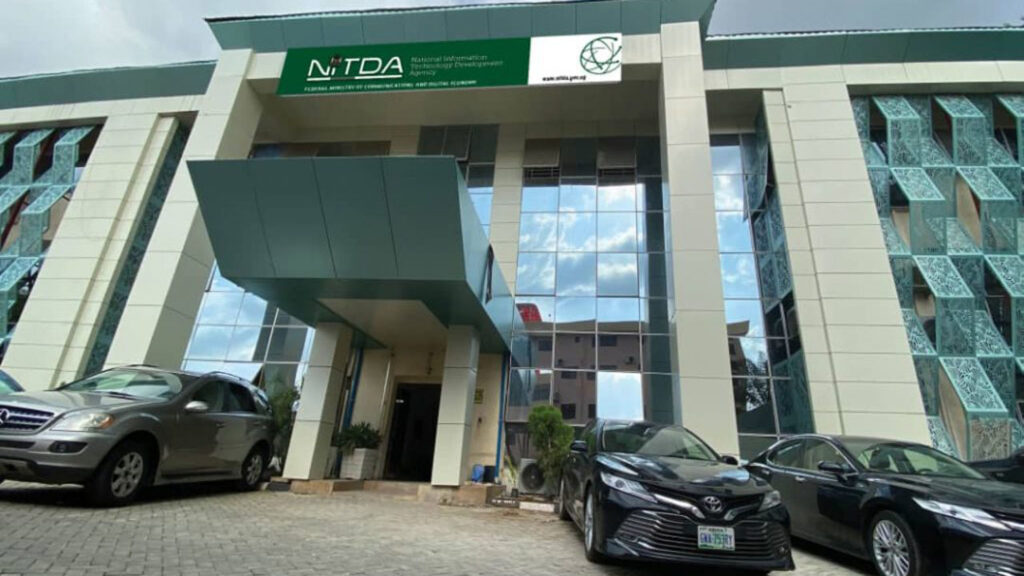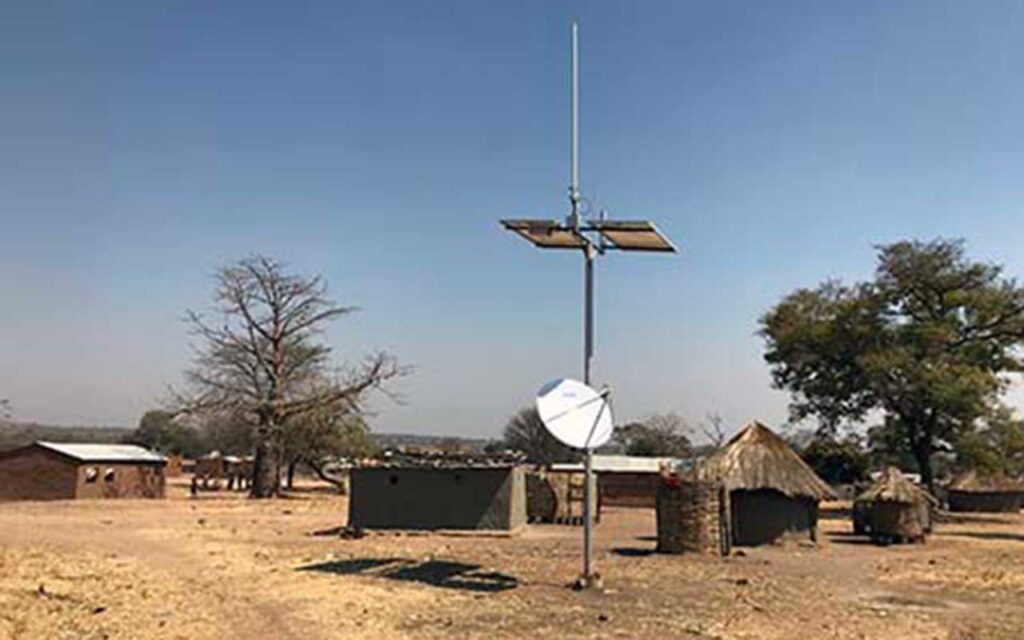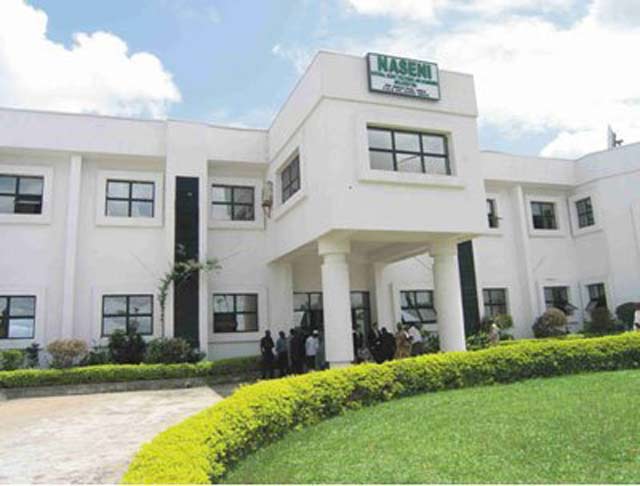
UK trained data scientist and energy analyst at Scottish Power, Adeleye Olaniyan, speaks about the advancement of artificial intelligence in Nigeria and how data science can bring about change in sectors plagued with challenges. He spoke with The Guardian’s Ifeanyi Ibeh.
How can data science and AI improve disease diagnosis and treatment planning in Nigeria, particularly for widespread diseases like malaria and tuberculosis?
In Nigeria, AI has the potential to revolutionize healthcare by analyzing vast amounts of medical data, including images from microscopes and X-rays, more quickly and accurately than traditional methods. For instance, AI algorithms can be trained to detect malaria parasites in blood smears with higher precision, significantly reducing the likelihood of misdiagnosis. Similarly, AI can assist in interpreting chest X-rays for signs of tuberculosis, ensuring that even subtle indicators are not overlooked.
Data science allows for the analysis of historical and real-time health data to predict disease outbreaks and identify at-risk populations. By analyzing patterns and trends, health officials can anticipate where malaria and tuberculosis cases are likely to spike, allowing for proactive measures such as targeted medical interventions and resource allocation.
In a resource-constrained setting like Nigeria, optimizing the use of available healthcare resources is crucial. Data science can help in managing the supply chain for medications, ensuring that areas with high demand for malaria and tuberculosis treatments are adequately stocked. Additionally, AI can assist in workforce management by predicting healthcare workforce needs based on disease patterns.
For example, when I was working with a healthcare startup in Lagos, we developed a system that used data science to track and predict medication usage patterns in different regions. This allowed us to allocate resources more effectively, ensuring that rural areas received the necessary malaria and tuberculosis treatments on time. By integrating real-time data and predictive analytics, we managed to reduce stockouts by 30% and improve treatment adherence rates.
Data science plays a critical role in medical research by analyzing clinical trial data and identifying potential new treatments. AI can expedite the drug discovery process by predicting how different compounds will interact with disease pathogens. This is particularly important for diseases like tuberculosis, where drug-resistant strains are a growing concern.
By integrating data science and AI into the healthcare system, Nigeria can improve the accuracy of diagnoses, create more effective treatment plans, and ultimately reduce the burden of diseases like malaria and tuberculosis.
What role can AI-driven personalized learning platforms play in enhancing the quality of education and addressing the teacher shortage in Nigeria?
AI-driven personalized learning platforms have the potential to revolutionize education in Nigeria, particularly in addressing both the quality of education and the significant teacher shortage the country faces.
These platforms can enhance the quality of education by offering tailored learning experiences to students. Unlike traditional classroom settings where a single teacher has to address the diverse needs of many students, AI can analyze individual learning patterns and adapt content to suit each student’s pace and style. This personalized approach helps ensure that no student is left behind, and those who can move faster are continuously challenged, thereby maximizing their potential.
AI-driven platforms can provide immediate feedback and support, something that is often challenging in overcrowded classrooms. For instance, intelligent tutoring systems can assist with subjects like mathematics and science, offering step-by-step explanations and identifying areas where a student might be struggling. This kind of support is invaluable, especially in regions where teachers may not have the resources or time to give individual attention.
Regarding the teacher shortage, AI-driven platforms can significantly alleviate this issue by supplementing the existing workforce. In many Nigerian schools, there are not enough qualified teachers to meet the demand. AI can serve as an educational aide, delivering lessons and engaging students in interactive activities. This allows the available teachers to focus on more complex educational tasks and provide support where it’s most needed.
In rural and underserved areas, where the teacher shortage is even more pronounced, AI-driven learning platforms can be particularly transformative. They can deliver high-quality education to students who otherwise might have limited access to knowledgeable instructors. With internet connectivity expanding, even remote regions can benefit from these advanced educational tools.
AI-driven personalized learning platforms can enhance the quality of education by providing tailored learning experiences, offering immediate feedback, and supporting teacher development. They also address the teacher shortage by supplementing instructional capacity and bringing quality education to underserved areas. By integrating these technologies, Nigeria can make significant strides in its educational sector, ensuring that all students have the opportunity to succeed regardless of their location or background.
How can data science be used to optimize agricultural practices and boost crop yields in Nigeria’s diverse climatic regions?
Data science has the potential to revolutionize agriculture in Nigeria by leveraging vast amounts of information to make more informed and precise decisions.
Data science enables precision agriculture, where farmers can use sensors, drones, and satellite imagery to collect real-time data on soil health, moisture levels, and crop conditions. This information allows for targeted interventions, such as precise irrigation, fertilization, and pest control, ensuring that resources are used efficiently and effectively.
Nigeria’s diverse climatic issues can benefit significantly from advanced weather forecasting models powered by data science. By analyzing historical weather data and current climate conditions, farmers can receive accurate predictions about rainfall, temperature, and extreme weather events. This allows them to plan their planting and harvesting schedules better, reducing the risk of crop failure due to unexpected weather changes.
Through data analysis, farmers can gain insights into soil composition and health across different regions. Soil sensors can provide continuous data on pH levels, nutrient content, and organic matter. This information helps in tailoring soil management practices, choosing appropriate crop varieties, and applying the right amount of fertilizers, ultimately enhancing soil fertility and crop productivity.
Data science can improve pest and disease management by using predictive analytics to identify and predict outbreaks. By analyzing data from various sources, such as pest population surveys, weather conditions, and crop growth stages, farmers can receive early warnings and take preventive measures. This reduces crop losses and minimizes the need for chemical pesticides, promoting sustainable farming practices.
Utilizing machine learning algorithms, data scientists can develop yield prediction models that help farmers estimate their potential crop yields based on factors like soil health, weather conditions, and farming practices. These models can guide farmers in making informed decisions about crop selection, resource allocation, and market planning, ensuring better financial outcomes.
Beyond the farm, data science plays a crucial role in optimizing the agricultural supply chain. By analyzing data from various stages of the supply chain—from production to distribution—stakeholders can identify bottlenecks, forecast demand, and reduce post-harvest losses. This ensures that crops reach markets in a timely manner, reducing food waste and increasing farmers’ profitability.
In what ways can AI help in identifying and developing new economic opportunities for small and medium-sized enterprises (SMEs) in Nigeria?
AI has the potential to revolutionize the landscape for SMEs in Nigeria by opening up new economic opportunities and enhancing existing ones in several significant ways.
AI can analyze vast amounts of data to uncover trends and patterns that might not be visible to the human eye. For SMEs in Nigeria, this means AI can help identify emerging market needs, predict consumer behavior, and tailor products or services to meet these demands. For instance, an AI-powered analytics tool can analyze social media trends and online reviews to provide real-time insights into consumer preferences.
AI technologies, such as machine learning algorithms, can help SMEs deliver personalized marketing campaigns. By analyzing customer data, AI can segment audiences and create targeted marketing strategies that are more likely to convert. This personalized approach can significantly increase customer engagement and loyalty, which is crucial for the growth of SMEs.
AI can streamline various business operations, from inventory management to supply chain logistics. By predicting inventory needs, AI can help SMEs reduce waste and optimize stock levels. Additionally, AI-driven automation can handle routine tasks, allowing business owners and employees to focus on more strategic activities.
AI can help SMEs in Nigeria tap into new markets by analyzing global market data and identifying opportunities for expansion. AI can also facilitate cross-border e-commerce by providing insights into international consumer preferences, optimizing pricing strategies, and even translating marketing materials.
AI offers a wealth of opportunities for SMEs in Nigeria by providing insights, enhancing operational efficiency, and driving innovation. By leveraging AI technologies, SMEs can not only survive in a competitive market but also thrive and expand their reach both locally and internationally.
How can AI technologies assist in crime prevention and improve public safety in Nigeria’s urban areas?
AI technologies hold tremendous potential in enhancing crime prevention and public safety in Nigeria’s urban areas. By leveraging AI, we can adopt a proactive approach to crime prevention rather than a reactive one.
AI can analyze vast amounts of data to identify crime patterns and predict where crimes are likely to occur. This enables law enforcement agencies to allocate resources more efficiently and increase patrols in high-risk areas, thereby deterring criminal activities before they happen.
AI-powered surveillance systems can enhance the capability of monitoring public spaces. Intelligent cameras with facial recognition and behavior analysis can detect suspicious activities and alert authorities in real-time, allowing for swift intervention. This technology can be particularly effective in crowded urban areas where manual monitoring would be challenging.
AI can assist in analyzing forensic data and identifying connections between different criminal activities. Machine learning algorithms can process data from various sources—such as crime reports, social media, and public records—to uncover hidden patterns and link crimes that might otherwise seem unrelated. This can expedite investigations and help solve cases more quickly.
Implementing AI technologies in Nigeria’s urban areas will require investment in infrastructure, training for law enforcement personnel, and the development of policies to address privacy and ethical concerns. However, the potential benefits in terms of reduced crime rates and enhanced public safety make it a worthwhile endeavor. By embracing AI, we can create safer, more secure urban environments for all Nigerians.
What potential does data science hold for improving the planning and management of Nigeria’s infrastructure projects, such as roads, bridges, and power supply?
Data science holds immense potential for transforming the planning and management of Nigeria’s infrastructure projects. With data, we can make more informed decisions. For example, in the planning stages of road construction, we can use data to analyze traffic patterns, population growth, and economic activities in various regions. This ensures that we build roads where they are most needed, ultimately reducing congestion and improving connectivity.
Moreover, data science can help in predictive maintenance of our infrastructure. Instead of waiting for a bridge to show visible signs of wear and tear, we can use sensors and data analytics to predict when maintenance is required. This proactive approach not only extends the lifespan of our infrastructure but also ensures the safety of our citizens.
When it comes to power supply, data science is a game-changer. We can analyze consumption patterns and predict peak demand periods, which helps in efficient energy distribution and reduces the frequency of power outages. Additionally, integrating renewable energy sources like solar and wind becomes easier with data-driven insights, ensuring a more stable and sustainable power supply.
Furthermore, data science can enhance transparency and accountability in the management of infrastructure projects. By utilizing big data and analytics, we can track the progress of projects in real-time, monitor budgets, and detect any anomalies early on. This reduces the risk of corruption and ensures that public funds are used effectively.
In essence, data science equips us with the tools to plan smarter, maintain better, and manage our infrastructure projects more efficiently. It’s about making decisions backed by data, which leads to more sustainable development and improved quality of life for all Nigerians. Embracing data science is not just an option; it’s a necessity for driving our nation forward.
How can AI and data science innovations contribute to expanding financial inclusion and access to banking services for the unbanked population in Nigeria?
Financial inclusion remains a significant challenge, with a large portion of our population still unbanked or underbanked. However, the advancements in AI and data science hold immense potential to bridge this gap and bring more people into the financial system.
AI-powered mobile banking solutions are crucial. Many Nigerians have access to mobile phones, even in rural areas. By leveraging AI, we can develop user-friendly mobile banking apps that offer various financial services. These apps can understand and process local languages and dialects, making them accessible to people who might not be literate or comfortable with English.
AI can enhance credit scoring models. Traditionally, many Nigerians have been excluded from the financial system because they lack formal credit histories. AI can analyze alternative data sources, such as mobile phone usage, utility payments, and social media activity, to create more accurate and inclusive credit scores. This means that more people can access loans and other financial products based on their actual financial behavior, not just their lack of formal banking history.
Moreover, AI and data science can improve the efficiency and security of financial transactions. AI algorithms can detect and prevent fraudulent activities in real-time, providing a safer banking environment for all users. This builds trust in the financial system, encouraging more people to participate.
In summary, AI and data science innovations offer powerful tools to enhance financial inclusion in Nigeria. By developing accessible mobile banking solutions, improving credit scoring models, and ensuring transaction security, these technologies can help bring the unbanked population into the formal financial system, fostering economic growth and stability.













